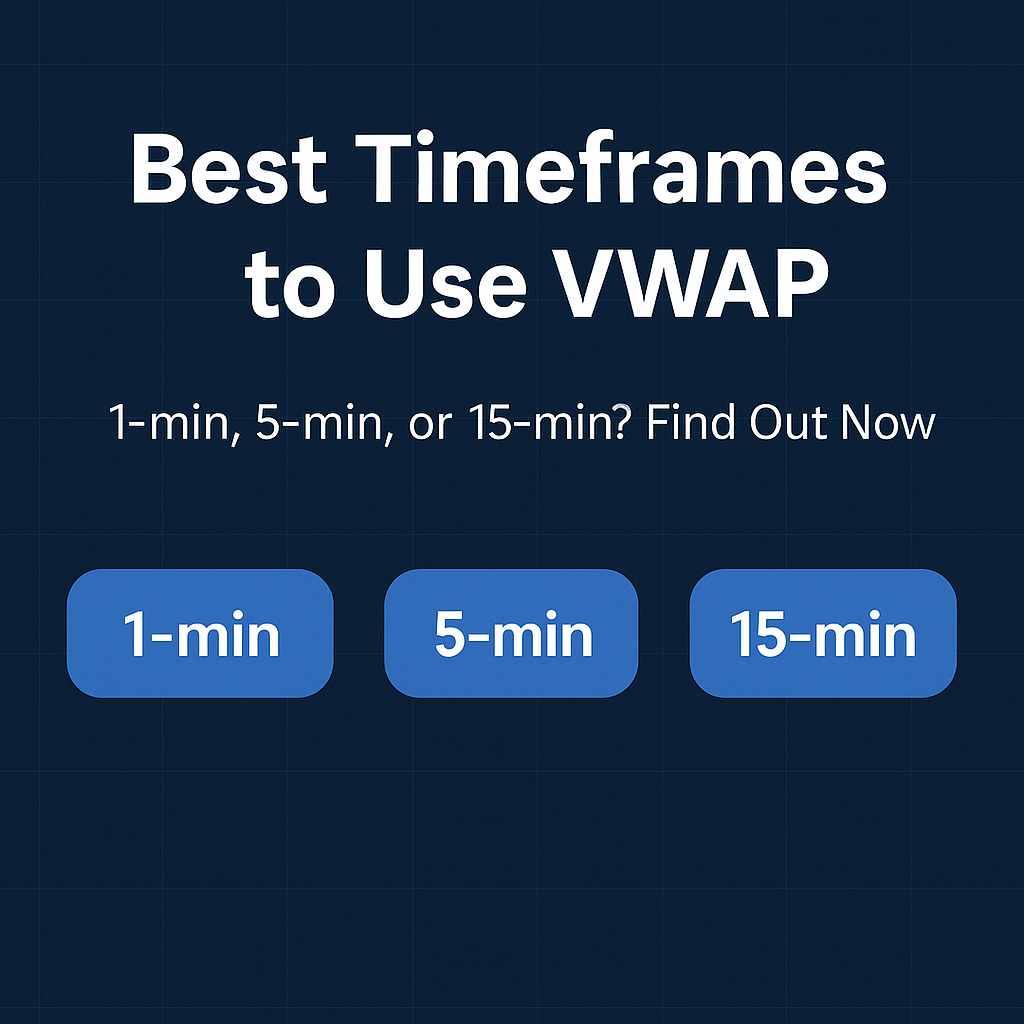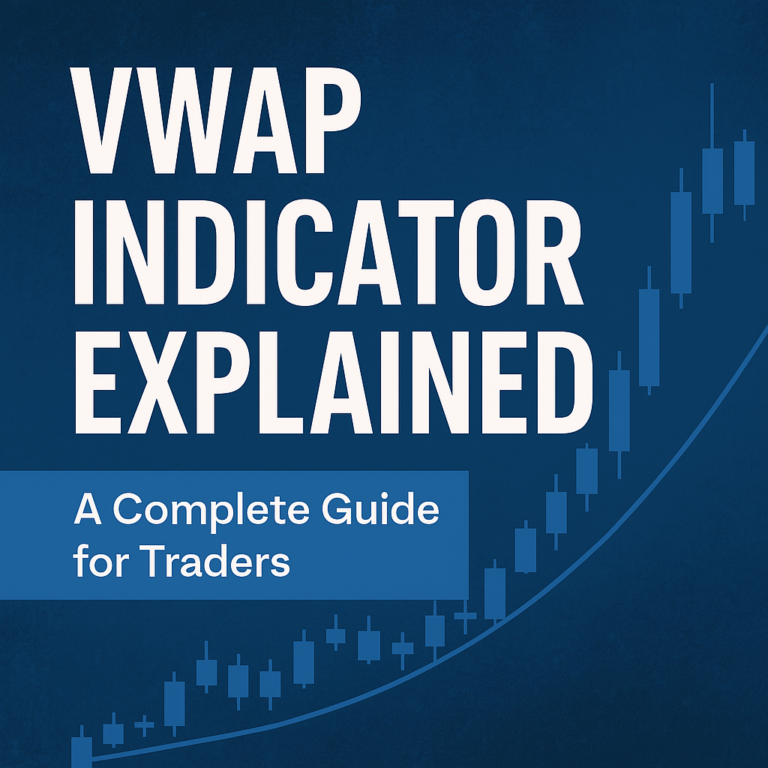Best Timeframes to Use the VWAP Indicator
Introduction
The VWAP indicator is a powerful tool—but to use it effectively, you must choose the right timeframe. In this guide, we’ll break down the best chart intervals for VWAP and how they affect your trading performance.
Why Timeframe Matters with VWAP
VWAP calculates a daily volume-weighted average price, so the chart’s timeframe directly influences:
- How signals appear
- The accuracy of entries/exits
- Whether VWAP is readable or noisy
Best Timeframes for VWAP Trading
✅ 1-Minute Timeframe
Best for: Scalping and high-frequency trades
- Shows precise entries near VWAP
- Very reactive to small price changes
- Use with caution—can be noisy
Pro Tip: Combine with volume spikes for confirmation
✅ 5-Minute Timeframe
Best for: Regular intraday trading
- Balanced view of price and volume
- Clean signals for VWAP bounce or breakout strategies
- Widely used by day traders
Pro Tip: Add RSI or MACD for trend confirmation
✅ 15-Minute Timeframe
Best for: Conservative day trading and breakout setups
- Smooths out small fluctuations
- Great for spotting sustained trends around VWAP
- Slower signals, but less noise
Pro Tip: Ideal for VWAP + EMA crossover setups
❌ Timeframes to Avoid with VWAP
- 1-hour and above: VWAP resets daily, so long timeframes distort its value
- Daily/Weekly charts: Not useful for VWAP-based signals
How to Choose the Right Timeframe
| Your Trading Style | Suggested Timeframe |
|---|---|
| Scalping | 1-minute |
| Active intraday trading | 5-minute |
| Trend confirmation | 15-minute |
| Swing trading | Avoid VWAP – use EMAs instead |


